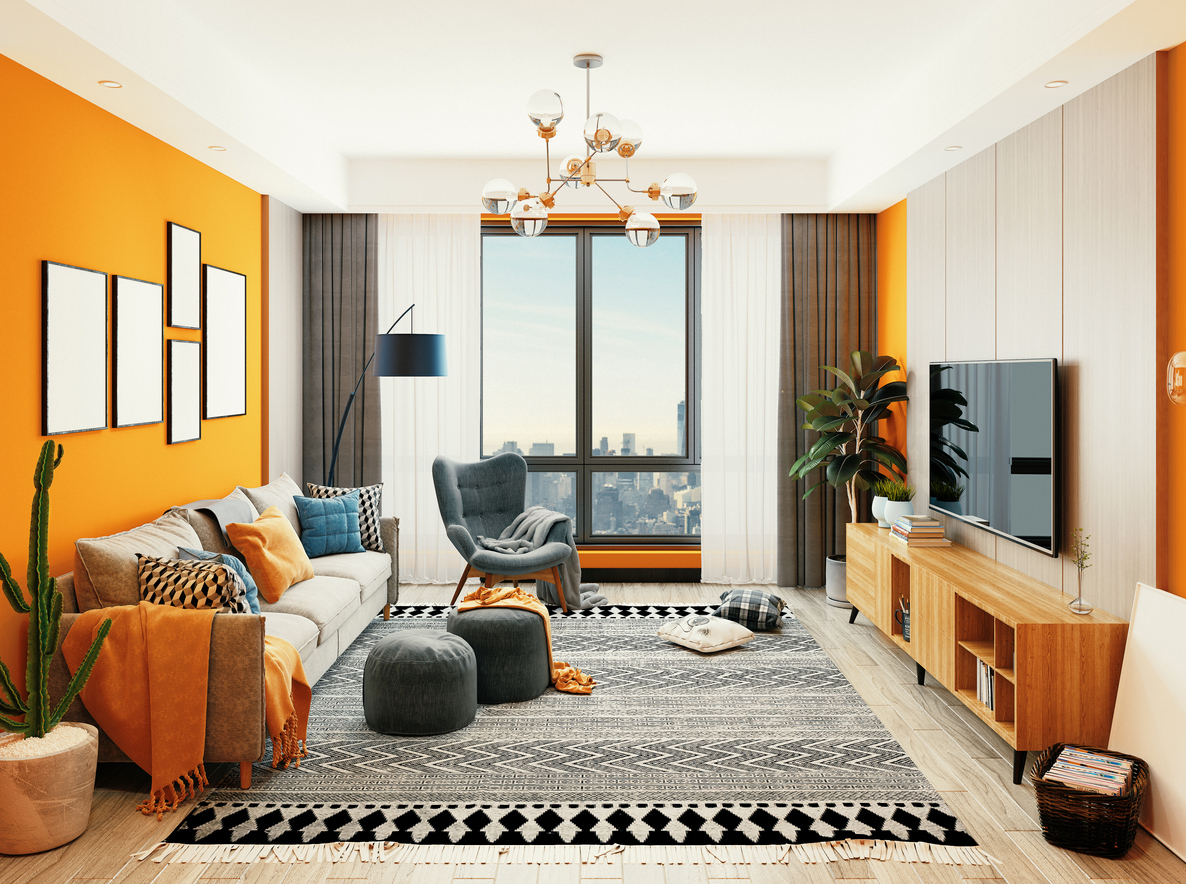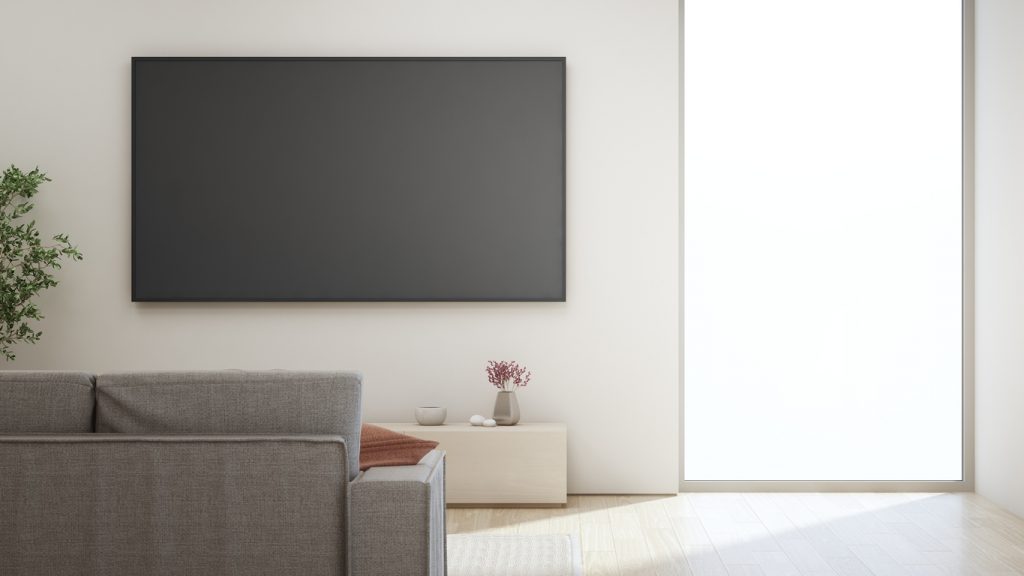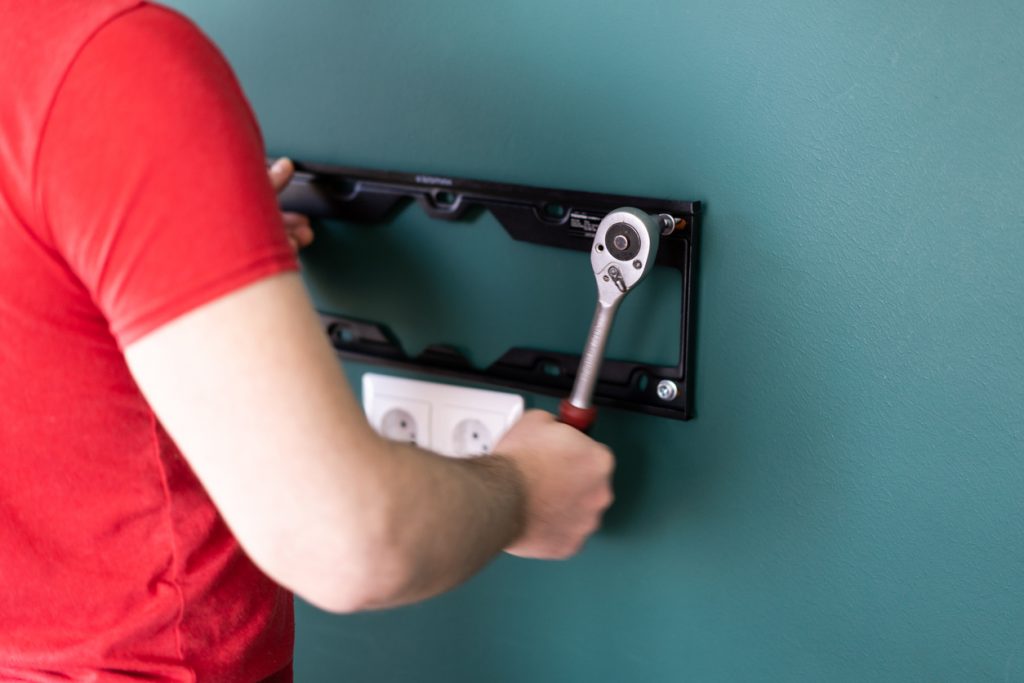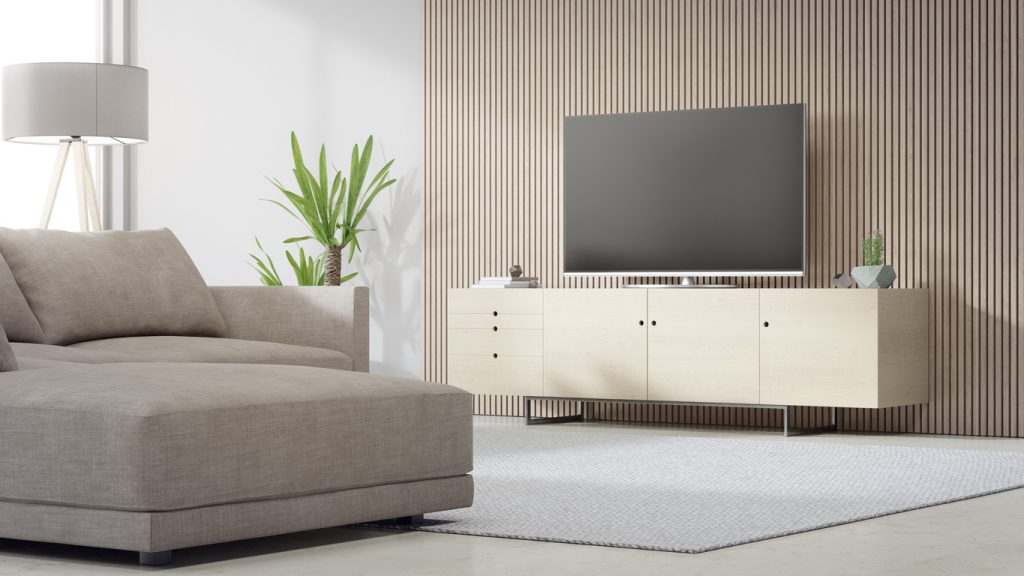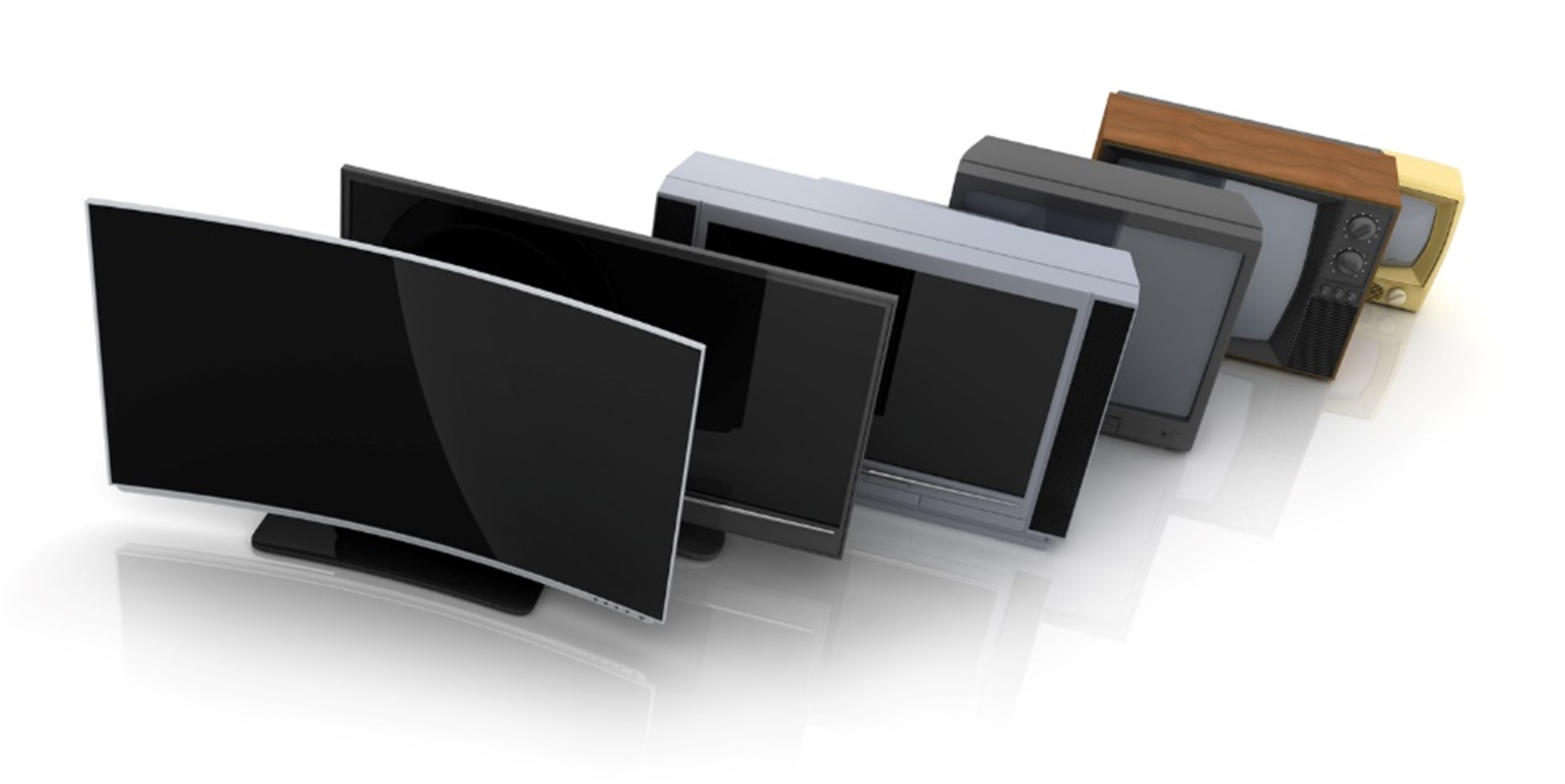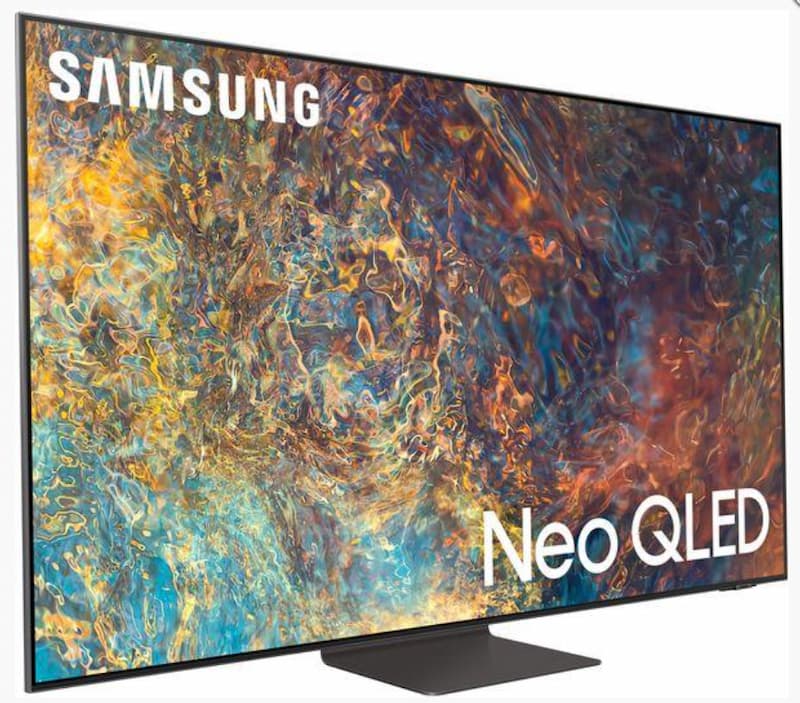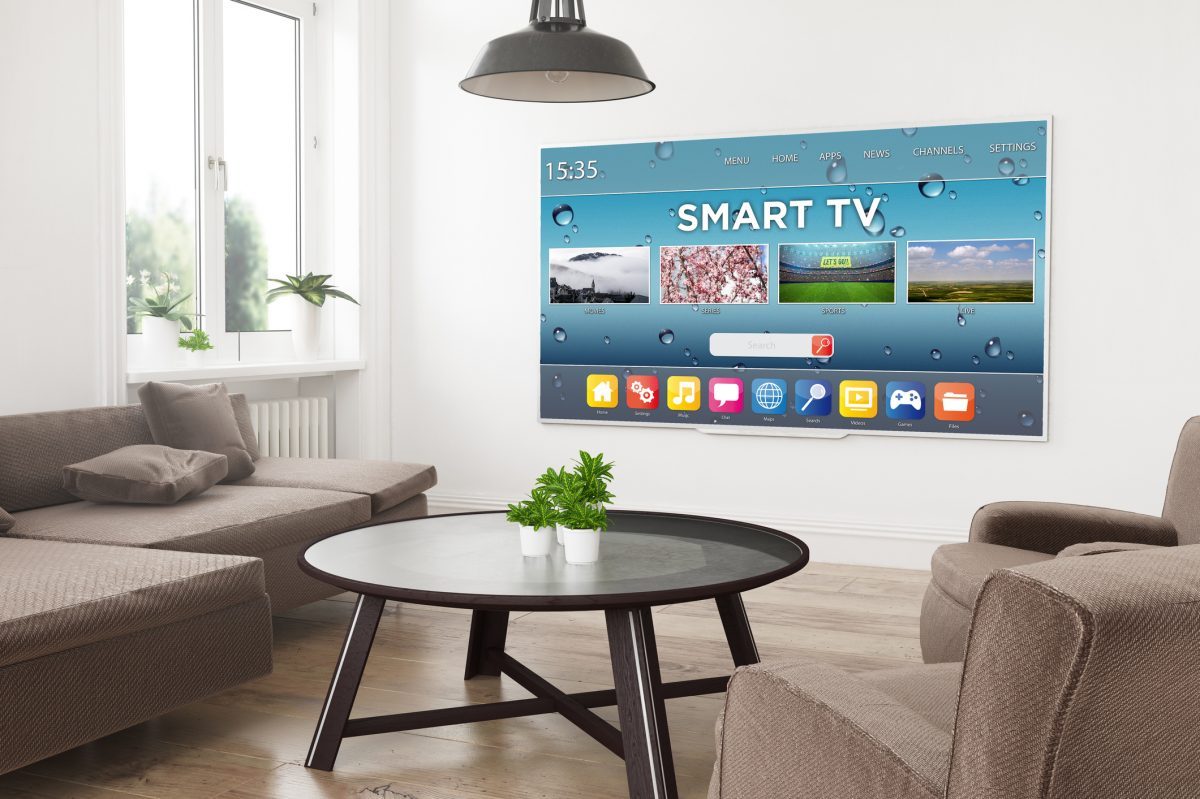At Electronic World, we supply TVs that can be wall-mounted or placed on a stand, depending on your preferences and space layout. If you’re unsure which option you should get, we can help.
Below, we’re taking a closer look at the pros and cons of these types of TVs to help you choose the right one for your home.
We have so many cheap TV deals that we’re confident you’ll find the perfect TV with us, whether you’re looking for Samsung 4K TVs, 8k TVs or cheap OLED TVs!
Wall-Mounted TVs
Pros
There are many benefits to choosing a wall-mounted TV for your home.
These types of TVs can save a lot of space in the room. Not only are the screens as thin as possible (meaning they barely stick out of the wall), but they also don’t take up floor space. You also don’t need a stand or cabinet. If you have a 60 inch TV or bigger, then mounting on the wall will help to save you a lot of space.
Wall-mounted TVs also help create a sleek, modern finish in your living room, since they help tidy up the décor. You don’t have to worry about cords either, since you can hide them behind the TV as well – you won’t trip on them either!
There is also a much smaller chance of damaging the TV when it’s wall mounted. Maybe you have children or pets, or maybe you’re afraid of accidentally knocking it over (for example, when cleaning) – no matter the reason behind your decision, you can rest assured that it won’t fall to the floor because it’s on a bracket.
Wall-mounted sets also create a great focal point in the room. Your interior décor will be cleaner and less cluttered like this, especially with all the cords tucked away. It can also create a more open look.
Cons
However, there are also some reasons why wall-mounted may not be the best option.
If you’re looking to add additional devices, such as a gaming console, you may not be able to hide the wires. This means that getting that uncluttered, minimalist look can be hard. Your extra devices will also need to be placed near the TV, so you likely have to purchase a table or stand to keep them anyway.
It takes longer to install a wall-mounted TV as well. If you don’t enjoy DIY or don’t have the time to secure the TV to the wall, you may want to choose a TV stand instead. Also, it’s worth keeping in mind that the installation must be done one hundred per cent correctly on the first try – if not and the TV is not secured as it should, it can fall to the ground.
If the TV is too high up, it can cause neck strain too. Make sure that the TV is installed at the right level to prevent an uncomfortable viewing experience.
People who live in a place with a lot of traffic, for instance, may want to avoid them as well. Vibrations can cause screws to loosen over time, which can lead to your TV falling down.
If you have a smaller TV such as 42 inch TV or less, then the TV will not take up as much space and so it may be better to have a TV of this size on a cabinet.
TV Stand
Pros
Just like with wall-mounted TVs, there are several pros of choosing a TV stand instead.
It’s easier to access the back of your TV, for once. Whether you want to plug your gaming console, your Blu Ray player or your soundbar, you’ll have no difficulty doing it with a stand-mounted set. You may also find it better to access cables and sockets if the TV is freestanding.
It can also be easier to clean the TV because you’re able to access all areas. Cleaning behind a wall-mounted TV is hard and cumbersome, but if your set is on a stand, you can simply shift the furniture around to access all areas.
You can better choose your viewing angle as well by moving the set, something you can’t easily do with a wall-mounted screen.
You’ll have more storage too, so your stand or cabinet can hold your DVD collection, your devices, your controllers, and anything else you want to keep hidden away but on hand should you need it.
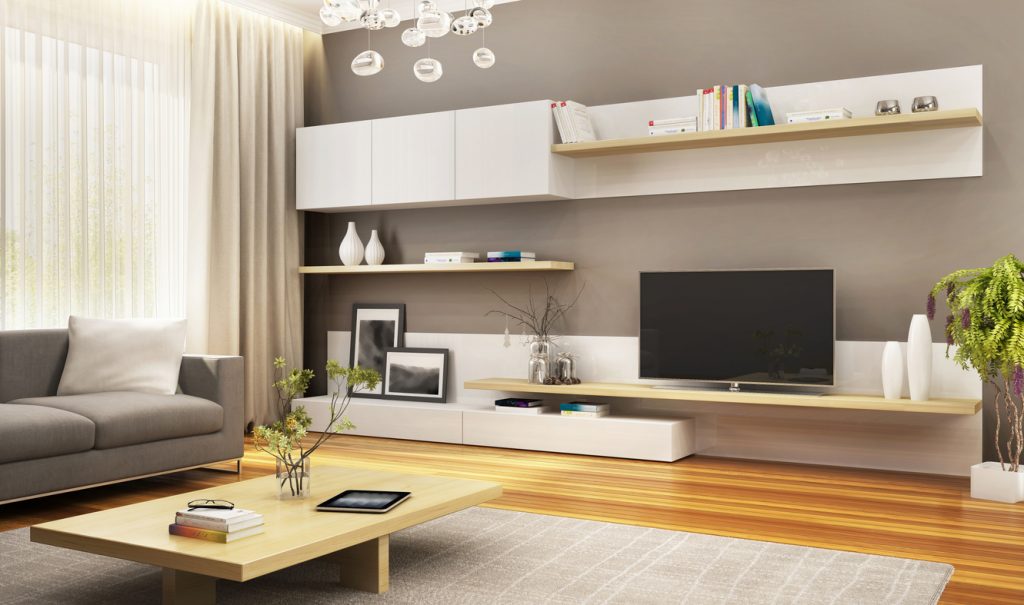
Cons
Stands take up a lot more space than having a TV mounted on the wall. This can be an issue if you have a very small living room or simply ran out of floor space.
Even if you live alone with no kids or pets, your TV has a higher chance of getting damaged if it’s on a stand. Because the TV is not fixed in place, all it takes for it to tip over is an accidental knock, so keep that in mind when making your decision.
The viewing height will depend on your furniture as well, so you may find that the TV is sitting too low or high for your tastes.
Which Should You Choose?
In the end, it will depend on your personal taste and how much space you actually have in your living room or bedroom. There are advantages and downsides to both, so either of them could be the right answer to your individual circumstances.
For example, wall-mounted TVs can save space and be a focal point in the room, and are also great if you have small kids or want more freedom of choice when it comes to places where the TV can go. However, TV stands are easier to move and may come with storage for cables and DVDs.
We can help you to make that decision, so speak to us on 0121 769 2623 if you’d like more information on a particular product.

